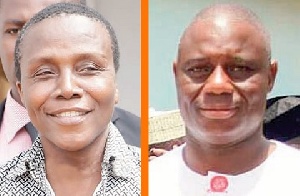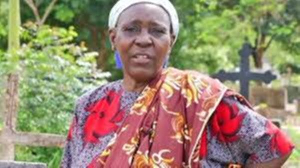Mr Fuseini Zaanyeya, who is 35 years old from Gbrimani Tibogu, cultivates and aggregates cowpea in the Tolon District of the Northern Region, where he earns substantial profit on his investment.
He has bought a tractor after harvesting over 500 bags of cowpea, and has continued to increase his acreage to earn more income.
Prior to taking into cowpea cultivation, Mr Fuseini had travelled from the north to Accra in search of better opportunities to make money to return home to continue his education, but only ended up as a head porter in scrap business, where life became difficult.
He was introduced to an improved cowpea variety when he visited home, which he cultivated and made good harvest convincing him to abandon the scrap business in Accra, and has since remained home continuing the cowpea cultivation and aggregation business.
The improved cowpea varieties which had been developed by Council for Scientific and Industrial Research -Savannah Agricultural Research Institute (CSIR-SARI) and its partners, and cultivated by Mr Fuseini, had been in existence for some time.
However with CSIR-SARI as a coordinating agency and with support from ICRISAT, International Institute of Tropical Agriculture (IITA), Ministry of Food and Agriculture (MOFA) and Heritage Seeds Company as part of the Tropical Legumes III project (TLIII) from 2016 to 2018, these varieties were extensively promoted to ensure farmers’ increased access to them.
The developed and certified improved cowpea varieties promoted are Padi-tuya, Songtaba, Zaayura, Apagbala, Kirkhousebenga and Wankai.
Mr Fuseini’s success in the cultivation of the improved cowpea variety has encouraged many youth in the area to stay home to engage in agriculture whilst others, who migrated to the south engaging in menial jobs, have also started returning home to join the sector.
Mr Fuseini, in a video documentary produced by Savannah Communications Ltd with funding from CGIAR Research Programme on Grain Legumes and Drylands Cereals to share his story, advised the youth to take into the cultivation of improved cowpea varieties because they ensured high yields, and demand for the produce was also high.
Dr Julius Yirzagla, Objective six Leader on the SARI/IITA TLIII project said it had led to the production of 200 tons of foundation seeds nationwide, 3,000 tons of certified seeds by beneficiary communities, the setting up of four innovative platforms in the north, and training of 2,800 innovative platform members to help popularise the seeds in the communities.
Dr Yirzagla said the project had led to sustainable production of improved varieties of cowpea and certified seeds as well as their delivery to farmers urging farmers to adopt the new improved varieties to increase food production to ensure food security and boost their incomes.
Alhaji Iddrisu Zakaria, Managing Director of Heritage Seeds Company gave the assurance of continuing to work to ensure farmers’ increased access to certified and improved cowpea seeds as well as reaching out to the youth to embrace the cultivation of cowpea in the country to amongst others stem the tide of rural-urban migration.
Business News of Wednesday, 15 May 2019
Source: ghananewsagency.org

















